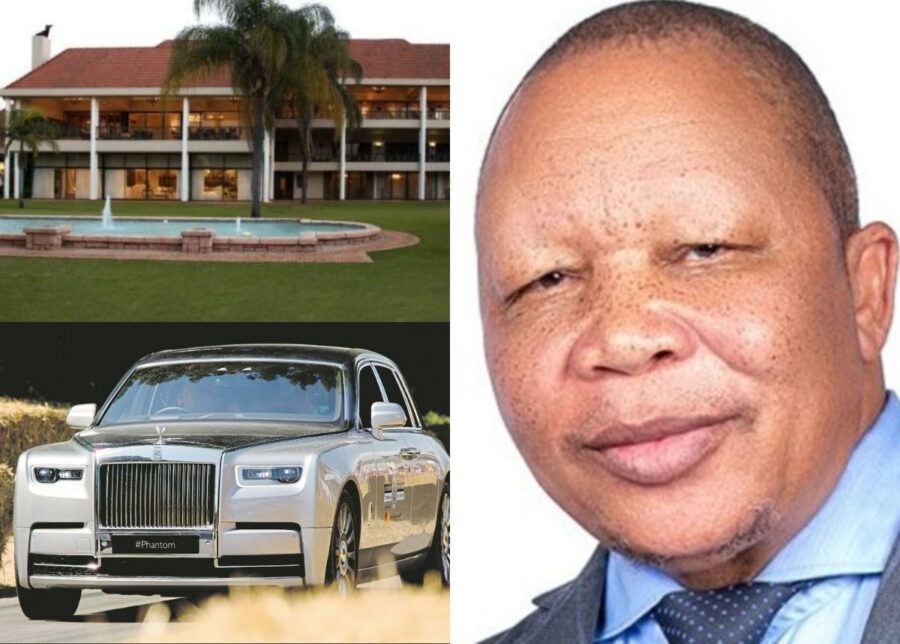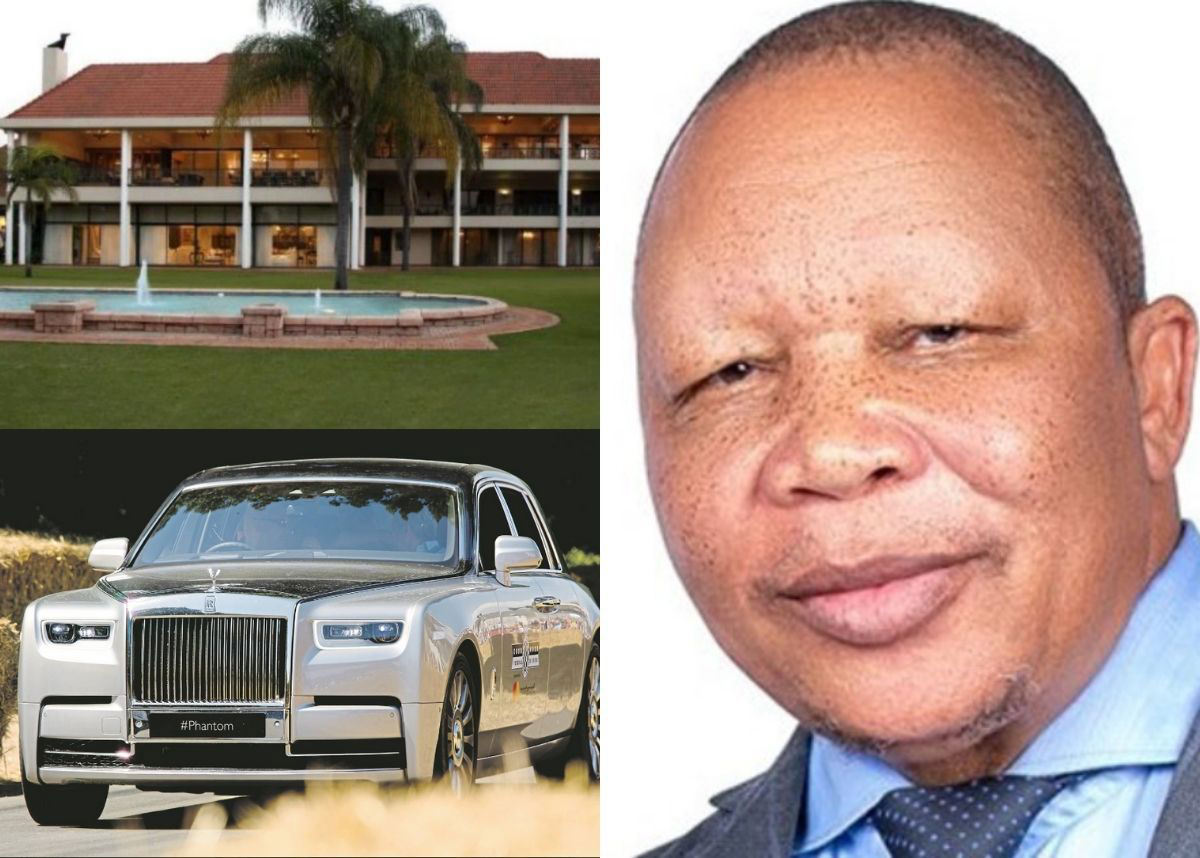
The NPA, the former Lottery boss and the Rolls Royce
Alfred Nevhutanda sold the car just three months after he bought it for R6.3-million

A preservation order on former National Lotteries Commission (NLC) board chair Alfred Nevhutanda’s R6.3-million Rolls Royce Phantom has been lifted because the vehicle has fallen “into the hands of an innocent third party”.
- Former National Lotteries Commission board chair Alfred Nevhutanda sold his luxury Rolls Royce less than three months after he paid R6.3-million for it.
- The National Prosecuting Authority says it is “irrefutable that the vehicle was bought with the proceeds of unlawful activities”.
- The vehicle had been frozen by the courts, but pursuing its forfeiture would be unsuccessful as it was now in “innocent hands”. So the NPA has unfrozen the car.
In September, after the Asset Forfeiture Unit revealed how almost R4.6-million of the car’s purchase price was siphoned from dodgy Lottery grants, the Pretoria High Court froze the vehicle.
“Even though it is irrefutable that the vehicle was bought with the proceeds of unlawful activities, it fell into the hands of an innocent owner,” said Gauteng National Prosecuting Authority (NPA) spokesperson Lumka Mahanjana.
Despite this, the NPA did not believe it would be successful if it pursued the forfeiture of the vehicle, Mahanjana said.
“We only realised on 17 October 2023 that it was sold … when the curator bonis sent us a communication from the attorney representing the innocent owner,” Mahanjana said.
The new owner, Rirhandzu Owner Siweya, is the CEO of a mining company “who used his dividends to pay for the vehicle … and is not involved in the fraud and corruption perpetrated against the NLC,” she said.
The NPA’s decision to withdraw the preservation order was based on the fact that Siweya paid “a price not significantly less than the market value of the property” and was unaware that it had originally been bought with “the proceeds of unlawful activity”.
Because of this, she said, it had become clear the NPA would not be “successful with an application to forfeit the vehicle. As such we had no choice but to release the vehicle from the preservation order”.
“It is obviously extremely frustrating for the AFU (Asset Forfeiture Unit) as we could clearly show that the vehicle was purchased with the proceeds of unlawful activity.”
Sold within months
Nevhutanda sold the Rolls Royce less than three months after he paid R6.3-million for it to Daytona Motors, a Sandton dealership, on 31 August 2016.
He sold it to Pcubed Exotica, an “exotic car rental, branding and chauffeur services company” on 17 November 2016.
Vivien Natasen, a director of Pcubed, appeared before the Zondo Commission in connection with allegedly corrupt transactions involving SA Express. Natasen told the Commission that he did not benefit from these transactions.
Natasen is also a director of Neo Solutions, renamed Neo Africa Advisory last year, which had paid R2-million towards Nevhutanda’s mansion. The company also scored over R26-million in NLC contracts while Nevhutanda was the Commission’s board chair.
Just over a year later, on 10 October 2017, Pcubed sold the Rolls Royce to Siweya, for R5.5-million, according to the NPA.
The NPA initially thought the vehicle had been bought from Nevhutanda by Malwandla Solly Siweya [unrelated to Rirhandzu], “who is implicated in fraud and corruption at the NLC”, the NPA said.
Dodgy mansion payments
As with his Rolls Royce, Nevhutanda’s Pretoria mansion was also paid for with money from Lottery grants intended for good causes.
Over a period of six months, payments running into millions of rands were made by several non-profits that had benefited from Lottery grants to attorneys handling the sale of the property.
Other payments, also amounting to millions, towards the house came from unrelated companies, including one linked to former NLC COO Phillemon Letwaba who resigned under a cloud, and consulting engineers and a construction company.
Red flags
Daytona received payments for the Rolls from several sources unrelated to Nevhutanda, a red flag for possible money laundering. But, in a response to questions sent to Daytona’s CEO, the company’s lawyers said that they were prohibited by law from disclosing whether the transaction had been reported to the Financial Intelligence Centre (FIC).
“For the avoidance of doubt ex abundanti cautela [out of abundant caution] the transaction foreshadowed in your enquiry was reconsidered by my client’s FIC compliance officer and is satisfied, as am I, that it has complied with each and every of its statutory obligations in regard thereto, and will continue to do so,” Alan Allschwang, Daytona’s lawyer said.
There are several sections of the Act under which Daytona might have been liable to report Nevhutanda’s purchase of the vehicle.
Because Nevhutanda was the NLC’s board chairperson at the time he bought the car and had previously held high office in the ANC as the party’s Limpopo regional chair, he was classified as a politically exposed person. As such, Daytona was likely legally bound to take measures, including ascertaining the source of the funds, before selling him the vehicle. There is also an obligation to report the sale of high-value goods valued at R100,000 or more to the FIC.
ALSO READ: Black Friday bargain flight offers! See here
No responses from Natasen and Nevhutanda
Natasen failed to respond to questions, including additional questions sent to him via email. GroundUp received a receipt showing that he had opened both emails.
Nevhutanda also did not respond to questions sent to him via a WhatsApp number and an email address on which GroundUp had previously communicated with him. The WhatsApp number is registered as his with the Companies and Intellectual Property Commission (CIPC). A person responded to the same questions sent to a second number registered as Nevhutanda’s on the CIPC’s database saying it was not his [Nevhutanda’s] number.
The emailed questions bounced back with an auto-response stating that the account was “over quota”.
